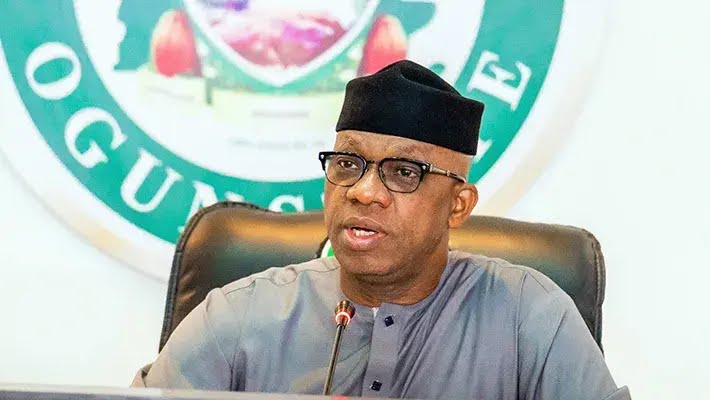NEWS
NiMSA Denounce Proposed Compulsory 5-Year Service Bill

The Nigerian Medical Students Association has expressed its opposition to the Medical and Dental Practitioners Act (Amendment) Bill, 2022.
This bill proposes that graduates in medical and dental fields must provide services within Nigeria for five years before they can receive a full license.
The bill’s sponsor, Ganiyu Johnson (APC/Lagos), believes that this will help to reduce the large number of medical professionals leaving the country.
The legislation is titled, ‘A Bill for an Act to Amend the Medical and Dental Practitioners Act, Cap. M379, Laws of the Federation of Nigeria, 2004 to Mandate Any Nigeria Trained Medical or Dental Practitioner to Practice in Nigeria for a Minimum of Five Years Before Granted a Full License by the Council in Order to Make Quality Health Services Available to Nigeria; and for Related Matters.’
In a statement released and signed by its President, Ejim Egba, the association views the bill as unpatriotic, ill-timed, and a violation of the fundamental human rights of doctors as enshrined in the 1999 Nigerian Constitution.
According to NiMSA, the proposed bill is designed to suffocate the medical profession.
The statement partly reads, “The search for greener pastures abroad can be reduced by making our land and pasture green, properly equipping our hospitals, better treatment for doctors and the brain drain will be adequately controlled. Rep. Johnson at this point should be steering conversations on medical
tourism and not doctor slavery. We firmly believe that this bill is not the solution to the problem of brain drain, and we stand against it in its entirety in the strongest possible terms.
“The intention behind the sponsorship of this bill does not take into consideration the root causes of brain drain in Nigeria. The issue of brain drain is multifaceted and requires a more comprehensive approach to tackle it. Instead of trying to forcefully take doctors as slaves, the
lawmakers should be focusing on creating an enabling environment that encourages doctors to stay and work in Nigeria.
“The lack of infrastructure, inadequate and inappropriate remuneration, and poor working conditions are some of the major factors driving medical professionals away from Nigeria. These issues need to be addressed if we want to attract and retain our healthcare professionals; make our land green.”
The students further argued that the proposed bill constitutes a violation of the fundamental human rights of medical professionals and should not be passed into law.
They maintained that the government lacks the authority to compel doctors to work in a specific location against their wishes.
Nigeria is currently facing one of the most severe cases of brain drain in its history, as many doctors who graduated in the country are leaving to seek better opportunities elsewhere.
Nigeria ranks third in terms of the highest number of foreign doctors working in the United Kingdom, after India and Pakistan.
Although the Nigerian Federal Government has denied that brain drain is unique to Nigeria, the World Health Organization (WHO) has expressed concern that this trend could have a negative impact on the country’s health systems and hinder progress towards achieving universal health coverage and health security.
NEWS
No Place For Sharia Court In Ogun State, Says Gov Abiodun

The Governor of Ogun State, Dapo Abiodun, has issued a stern warning against any attempt to establish a Sharia Court in the state without legal authorization.
This comes in response to the circulation of a digital notice announcing the launch of such a court.
In a statement personally signed on Tuesday, Governor Abiodun emphasized that Sharia Courts cannot be legally established by individuals or groups outside the provisions of the Nigerian Constitution.
READ MORE: Monarch Crisis: Ogun Court Strips Macgregor Of Olu of Orile Ilawo Title
He reaffirmed that the state government only recognizes courts constituted through the legal framework of the Constitution and state laws.
“No Sharia Court is authorized to operate within Ogun State,” Abiodun stated. “The courts legally empowered to adjudicate disputes in the state are Magistrates’ Courts, High Court, Customary Courts, Customary Court of Appeal, Federal High Court, National Industrial Court, Court of Appeal, and Supreme Court.”
He further clarified that Sharia law does not form part of the legal framework in Ogun State and warned against the operation of unauthorized courts or assemblies.
According to the Governor, the state government respects the rights of individuals to practice their religion and apply their faith in personal matters.
However, this freedom does not extend to the creation of institutions or courts without proper legal backing.
Governor Abiodun directed all individuals involved in the creation or operation of the illegal Sharia Court to immediately cease all activities and disband the entity.
He also urged the public to disregard any summons, documents, or communications from the unauthorized court and to report such incidents to the authorities.
“The Ogun State Government will uphold the rule of law, ensure respect for the legal and judicial framework within the state, and prevent any breakdown of law and order,” the statement concluded.
NEWS
JUST IN: Tinubu Returns To Abuja After Energy Summit In Tanzania
President Bola Ahmed Tinubu has returned to Abuja after attending the Africa Heads of State Energy Summit held in Dar es Salaam, Tanzania.
The presidential aircraft, 001, landed at the Nnamdi Azikiwe International Airport at 7:40 pm on Tuesday, according to the State House media office.
The President was received by top government officials, including the Minister of the Federal Capital Territory, Nyesom Wike, and the National Security Adviser, Nuhu Ribadu.
READ ALSO: ‘I Can Only Be Removed At A National Convention – PDP’s Samuel Anyanwu Declares
The summit, organized by the Tanzanian government in partnership with the African Development Bank Group and the World Bank, centered on advancing “Mission 300,” an initiative designed to provide electricity access to 300 million Africans by 2030.
During the event, African leaders, private sector representatives, development partners, and civil society organizations discussed strategies to overcome the continent’s energy challenges.
Discussions focused on renewable energy, energy efficiency, and accelerating energy access in underserved regions, with an emphasis on mobilizing private sector investment.
On the opening day, ministers from participating nations presented their national energy strategies, known as compacts, which outlined their plans to achieve universal energy access within five years.
The summit culminated in the endorsement of the Dar es Salaam Energy Declaration by Heads of State, including President Tinubu, which charts a unified path for achieving the goals of Mission 300.
In his address, Tinubu reaffirmed Nigeria’s leadership role in Africa’s energy sector and emphasized the country’s commitment to universal energy access.
He highlighted Nigeria’s ongoing clean energy initiatives and detailed its strategy for integrated energy delivery across the continent.
“Nigeria remains committed to achieving universal access to energy and will continue to champion solutions that integrate renewable energy and enhance efficiency across Africa,” Tinubu said.
The President was accompanied by key members of his administration, including the Minister of State for Foreign Affairs, Bianca Odumegwu-Ojukwu; Minister of Power, Adebayo Adelabu; and Special Adviser on Energy, Olu Verheijen.
International News
Fire Breaks Out On Air Busan Plane In South Korea, One Injured
An Air Busan passenger plane caught fire at Gimhae International Airport in Busan, South Korea on Tuesday, forcing the evacuation of 176 people on board, Yonhap News Agency reported.
The incident occurred at around 10:30 p.m. local time (1330 GMT) as the aircraft, which was bound for Hong Kong, ignited near its tail section.
A total of 169 passengers and seven flight attendants were evacuated using inflatable slides, Yonhap reported.
SEE ALSO: South Korean Court To Decide Fate Of Detained President Yoon Suk Yeol
One person sustained injuries during the evacuation, but no further details about the injury or the fire’s cause were immediately available.
South Korea’s Busan fire authorities were not reachable for comment, according to AFP.
This incident comes just weeks after South Korea’s worst aviation disaster in decades.
Recall that on December 29, a Jeju Air Boeing 737-800 crash-landed and exploded after striking a concrete barrier at Muan International Airport.
The crash killed 179 of the 181 passengers and crew on board.
According to Flightradar24, Air Busan’s fleet is composed entirely of Airbus aircraft.
The cause of Tuesday’s fire is under investigation.













